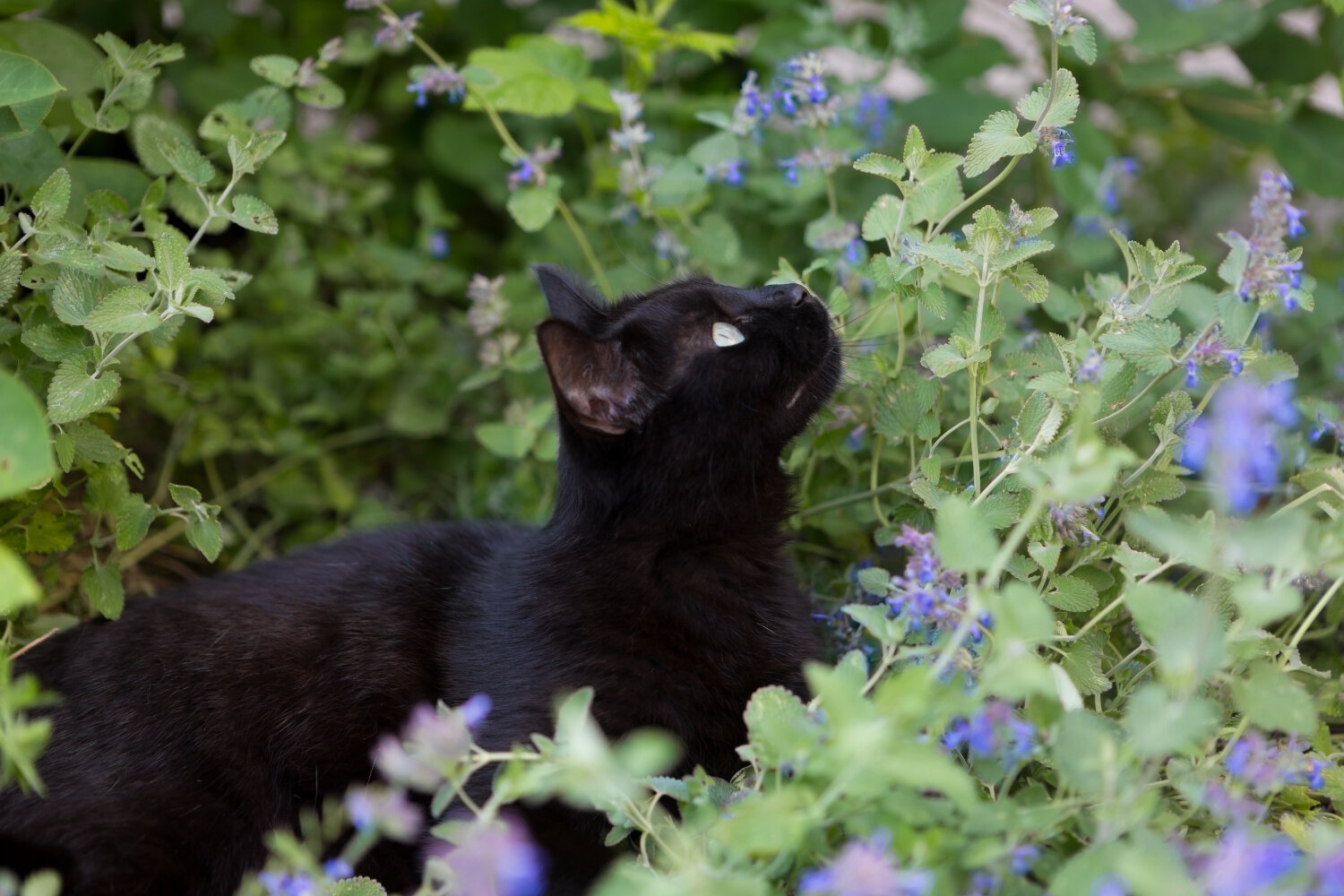Anxious? These 5 Herbs May Bring You Some Peace and Calm
Can herbs help with anxiety?
The short answer is: yes!
Nervines (herbs that calm and support the nervous system) and anxiolytic herbs can help quell anxiety, plus all of the other symptoms that come along with anxiety like digestive upset, insomnia, and muscle tension.
Before going forward, I do have to put forth the following disclaimer: With anxiety being so pervasive and multifaceted, there is no “one-size-fits-all” approach to treating anxiety. The herbs listed here can be extremely helpful, but getting to the bottom of the root cause of your anxiety usually involves a lot of work (i.e. addressing nutritional deficiencies/food intolerances and mindfulness/spiritual practices).
That being said, here are some herbs you might turn to for relief:
If your anxiety is messing with your digestion:
Catnip (Nepeta cataria):
Yes, you read that right! I love catnip for supporting people with stress induced diarrhea, constipation, or nausea. In addition to being a calming nervine (it does the opposite for us that it does for most cats!), this mint family herb supports the gastrointestinal system with its bitter and anti-spasmodic compounds. If you tend to hold onto emotions or anxiety in your gut, then you may give catnip a try! This is also a popular herb for children that need a little peace and calm.
Enjoy catnip in a tea, tincture, or glycerite.
Catnip is very safe, but avoid during pregnancy.
If you’re anxious and feeling really tense:
Skullcap (Scutellaria lateriflora)
Skullcap is restorative, calming, and tension-relieving. Its flowers resemble little craniums, a “doctrine of signatures” indicating it’s affinity for the nervous system.
In the 19th century it was used for spasmodic nervous conditions like epilepsy and delirium tremens. This relaxing, anti-spasmodic herb is great for relieving anxiety that comes with muscle spasms, headaches, or neck and shoulder pain (use with blue vervain).
Skullcap is great as a tea or a tincture.
Skullcap is very safe.
If you get heart palpitations when you’re stressed OR you want heart to feel open, yet supported and strong:
Motherwort (Leonurus cardiaca)
Motherwort is one of my favorite plant allies. Our emotional hearts are open, yet strong and stable, with the help of motherwort. As soon as I take it the flower essence of motherwort, I feel my shoulders relax, my heart open, and a strength in my spine as it lengthens and grows taller.
Motherwort is extremely supportive to the cardiovascular system, especially in people with stress-induced cardiac issues. It is also somewhat unique in that it is a cooling blood mover, as most “blood moving” herbs are warming (ginger, cinnamon, cayenne, etc). Motherwort supports the heart and circulation while calming and cooling the system.
Motherwort is also a bitter herb that supports digestion. Personally, I’ve found it helpful when I’ve felt anxious to the point where I didn’t have an appetite.
Because motherwort is so bitter, so I would enjoy it as a tincture or flower essence.
Do not take motherwort if you are pregnant or trying to conceive.
If you need to get out of your head in and into your body:
Blue Vervain (Verbena hastata)
Besides shocking your tastebuds with its acrid bitterness, the moment you taste blue vervain you might also feel yourself take a nice, deep breath. Blue vervain helps us get out of parasympathetic mode and into rest and digest mode (it’s also a digestive bitter!). It can be great for people who experience tension in their neck and shoulders.
Energetically, this top heavy plant helps those who are “strong above, weak below” – driven, type A people whose minds move quickly and who put themselves under a lot of pressure (that may eventually boil over). Their physical bodies, on the other hand, are not quite as robust. Blue vervain helps move energy from the head downward to the rest of the body.
Because of its extremely bitter taste, I usually use blue vervain in tincture form, or I sprinkle a “spirit dose” of it in a tea blend.
Start with small doses and do not use if you are pregnant or trying to conceive.
If you need to quiet the mental chatter and go to sleep:
Passionflower (Passiflora incarnata)
Passionflower is a calming nervine with mild sedative properties. When your thoughts are getting in the way of you falling asleep and staying asleep, passionflower can be helpful, either by itself or part of a sleep formula. Some people can’t tolerate passionflower during the day because it makes them too drowsy. Others may find that it takes the edge off just enough without making them feel tired. You can expertement to see what works for you.
It’s lovely before bedtime and often combined with skullcap.
It has a mild flavor that makes it great in a tea. You can also enjoy it as a tincture.
Passionflower may increase the effects of sedative, anxiolytic, or antispasmodic medications. Contraindicated for those taking MAOIs.
I hope you get to develop a relationship with some of these plants and experience how calming and restorative they can be to your nervous system. If you would like more in-depth support for anxiety, you can explore my offerings here.




